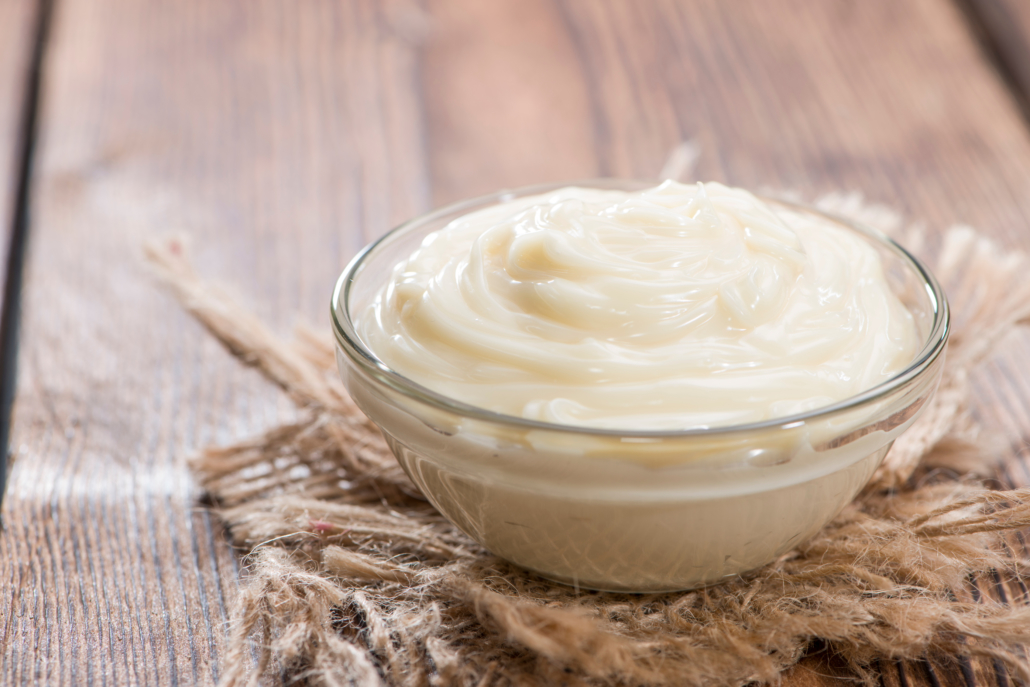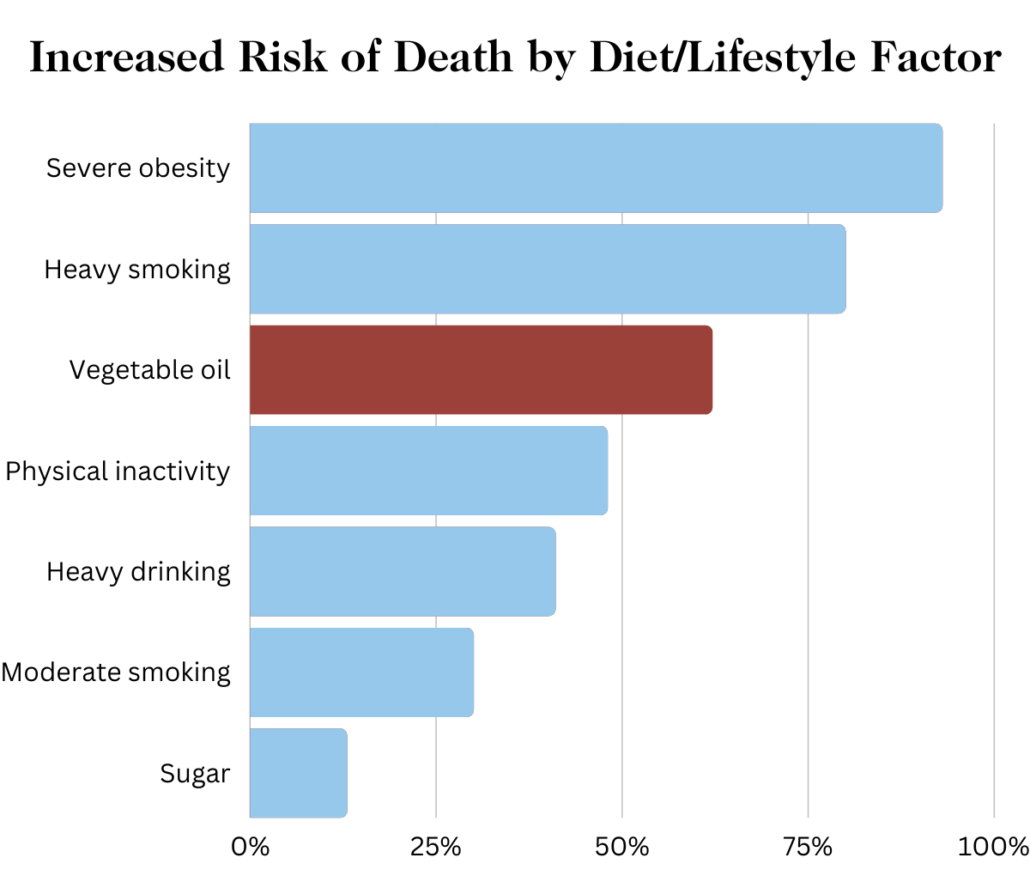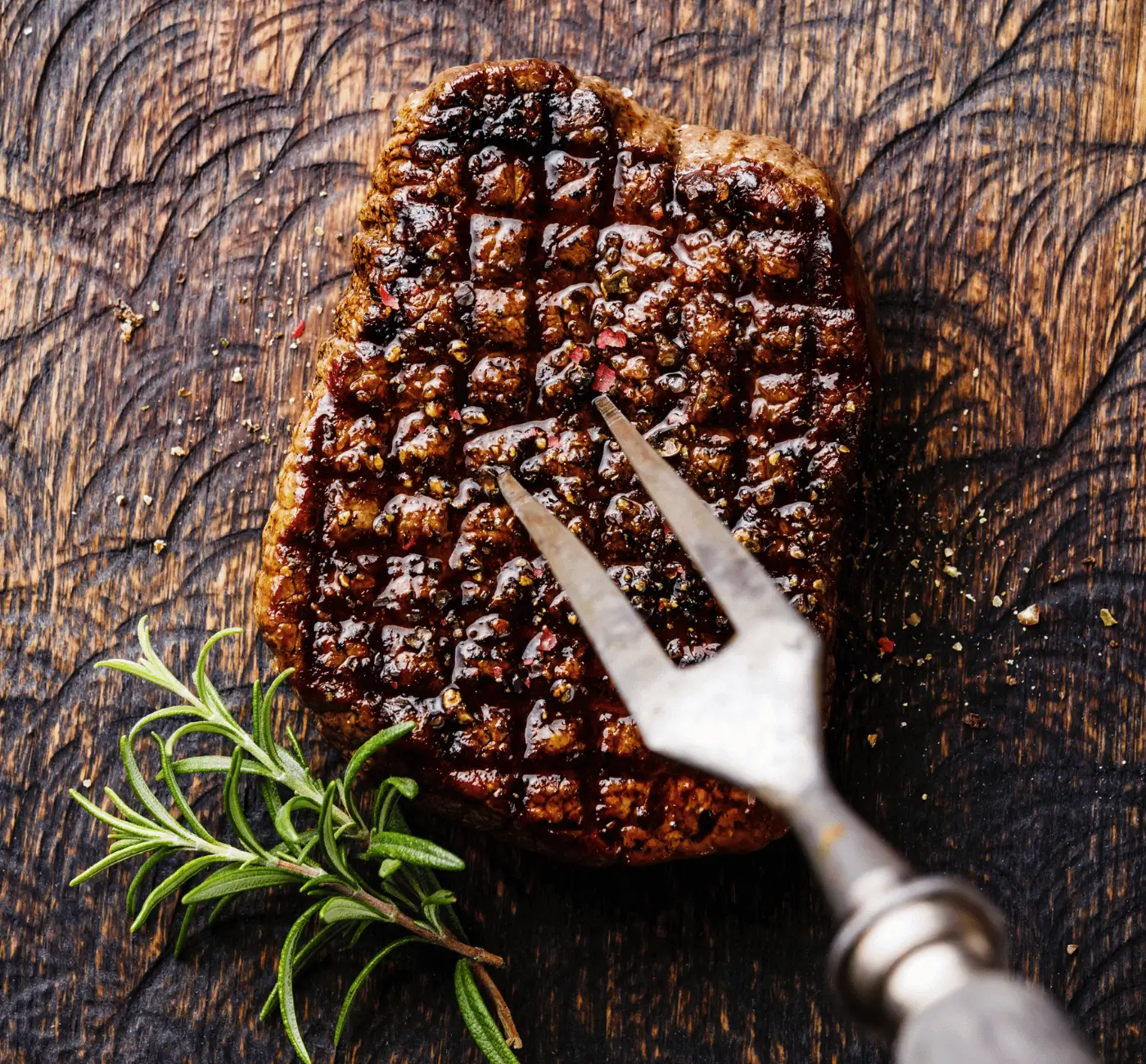
The carnivore diet calls for eliminating plant-based foods and eating only animal products. Based on this criterion alone, store-bought mayonnaise is not a carnivore diet food.
Mayonnaise is made from toxic seed oils–usually canola or soybean oil– along with sugar, lemon, and vinegar. All of these are non-carnivore foods.
Mayo does use plenty of eggs, but that doesn’t make up for the other ingredients.
If you’re looking for creamy and tangy toppings for your meaty meals, it’s best to stick with pure high-fat dairy options like creamy blue cheese, sour cream, and its sophisticated French cousin creme fraiche. Or keep it simple with butter and ghee
That said, if you’re a mayonnaise addict and can’t imagine doing carnivore without it, or if you want to have some mayo with your tallow-fried french fries on your cheat, AKA “treat” days, then we have a carnivore-friendlier mayo recipe for you.
The main reason why store-bought mayonnaise is a big NO on the carnivore diet, even on cheat days, is that it is loaded with seed oils.
Not only are these oils made from off-limits plant sources, they’re highly toxic.
Canola, soy, and safflower oils are sneakily called “vegetable” oils to make them appeal to people who have been brainwashed into believing anything vegetable-related is healthy.
But in fact, the introduction of seed oils into the modern diet is likely the worst thing that has ever happened to human dietary health.
Seed oils became a thing back in the 1960s. That’s when ambitious researcher Ansel Keys, cherrypicked data and erroneously linked saturated fat consumption with heart disease.
Modern science tells us that this link is false, yet the myth was so soothing that the media ran with it, putting Keys on the cover of Time magazine.

In a short time, industrial vegetable oil manufacturer Proctor & Gamble created products like Crisco that they could market to a fearful society while propping up the fledgling American Heart Association into an influential marketing wing of the industrial grain and vegetable oil industry.
So what happened to human health when animal fat was demonized and PUFA-rich vegetable oils saturated the American diet?
Both randomized control trials using humans and animals, historical evidence, and large-scale observational studies show that vegetable oils cause inflammation and disrupt hormone signaling in ways that lead to dramatically increased risk of:
In fact, consuming vegetable oils is the third riskiest diet and lifestyle factor. And if we consider that it’s largely responsible for obesity, as studies suggest, then consuming vegetable oil is, in fact, the deadliest lifestyle factor.

Ok, so what does this all have to do with mayo on carnivore?
Well, for one, it tells us that you’d be a fool to even cheat with store-bought mayo.
And two, if you’re a mayo fiend and can’t imagine life without it, it would be irresponsible of us not to share with you both a pure carnivore mayo recipe, and a carnivore diet-friendlier option.
Both completely eliminate seed oils. One eliminates all non-carnivore ingredients, but it may be a bit bland. While the other friendlier option allows for small amounts of non-carnivore ingredients.

Though this recipe includes non-carnivore foods like lemon and dijon mustard, it’s great as a treat-day condiment that eliminates toxic vegetable oils and boosts your intake of healthy fats
It’s also possible to make this true carnivore by eliminating lemon juice, ACV, and mustard. The taste will be bland, but you’ll get that dreamy mayo texture.
Store in the fridge and enjoy!
Store-bought mayo is a big NO on the carnivore diet. It’s loaded with toxic, inflammatory seed oils and contains other non-carnivore ingredients like sugar, vinegar, and lemon.
However, it is possible to make homemade versions of mayo.
Our carnivore–friendlier mayo recipe uses duck fat instead of vegetable oil, and its suitable for occasional cheat/treat days. At the same time, our pure carnivore diet mayo eliminates lemon, mustard, and vinegar. It may be a bit bland, but you can feel free to eat it by the spoonful.
.png)
.png)
We’re a global community of seekers, healers, and doers committed to reclaiming health on our own terms. When you join the Kiltz Mighty Tribe (KMT), you’ll gain access to education, support, and collective wisdom.


